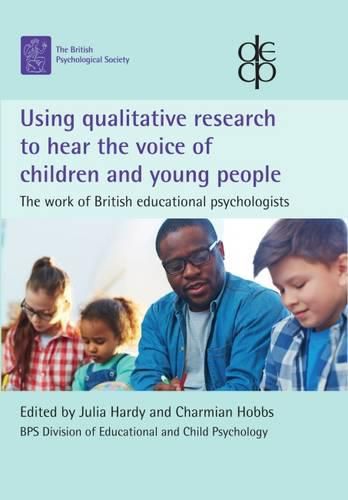Readings Newsletter
Become a Readings Member to make your shopping experience even easier.
Sign in or sign up for free!
You’re not far away from qualifying for FREE standard shipping within Australia
You’ve qualified for FREE standard shipping within Australia
The cart is loading…






This title is printed to order. This book may have been self-published. If so, we cannot guarantee the quality of the content. In the main most books will have gone through the editing process however some may not. We therefore suggest that you be aware of this before ordering this book. If in doubt check either the author or publisher’s details as we are unable to accept any returns unless they are faulty. Please contact us if you have any questions.
It is an obligation on all adults who work with children and young people to enable them to express their views about decisions, which will affect their lives. This obligation is enshrined in the UN Conventions on the Rights of the Child and within UK legislation. Educational psychologists have worked hard to fulfill this obligation and there is much to celebrate in their advocacy with and for children and young people; however this is work in progress, which demands continual reflection and review. This book sets out to explore the ways in which the qualitative methodologies within psychology can support the role of educational psychologists (and others who work with children and young people) to fulfill their role in supporting hearing the voice of children and young people.
This book does not purport to be a comprehensive guide to all possible qualitative methodologies (there are many other available publications which can provide that information) or to be fully representative of all work currently undertaken by educational psychologists. What the book does aim to do is provide:
A counter argument to the prevailing emphasis on quantitative approaches in educational psychology
A challenge to dominant ideas about the way in which children are constructed within current professional practice
An overview of the changes in the practice of educational psychologists in accessing the voice of the child
A commentary on two qualitative methodologies widely used by educational psychologists - Interpretive Phenomenological analysis (IPA) and Grounded Theory
Many examples of work based on qualitative approaches undertaken with children and young people whose voice is usually marginalised or absent
Some thoughts about the further development of qualitative approaches in the work of educational psychologists when accessing the voice of the child.
The book has been produced by the Division of Educational and Child Psychology (DECP) which is part of the British Psychological Society. The Division works to support the professional practice of educational psychologists (EPs) through the provision of professional development, guidance and publications.
$9.00 standard shipping within Australia
FREE standard shipping within Australia for orders over $100.00
Express & International shipping calculated at checkout
This title is printed to order. This book may have been self-published. If so, we cannot guarantee the quality of the content. In the main most books will have gone through the editing process however some may not. We therefore suggest that you be aware of this before ordering this book. If in doubt check either the author or publisher’s details as we are unable to accept any returns unless they are faulty. Please contact us if you have any questions.
It is an obligation on all adults who work with children and young people to enable them to express their views about decisions, which will affect their lives. This obligation is enshrined in the UN Conventions on the Rights of the Child and within UK legislation. Educational psychologists have worked hard to fulfill this obligation and there is much to celebrate in their advocacy with and for children and young people; however this is work in progress, which demands continual reflection and review. This book sets out to explore the ways in which the qualitative methodologies within psychology can support the role of educational psychologists (and others who work with children and young people) to fulfill their role in supporting hearing the voice of children and young people.
This book does not purport to be a comprehensive guide to all possible qualitative methodologies (there are many other available publications which can provide that information) or to be fully representative of all work currently undertaken by educational psychologists. What the book does aim to do is provide:
A counter argument to the prevailing emphasis on quantitative approaches in educational psychology
A challenge to dominant ideas about the way in which children are constructed within current professional practice
An overview of the changes in the practice of educational psychologists in accessing the voice of the child
A commentary on two qualitative methodologies widely used by educational psychologists - Interpretive Phenomenological analysis (IPA) and Grounded Theory
Many examples of work based on qualitative approaches undertaken with children and young people whose voice is usually marginalised or absent
Some thoughts about the further development of qualitative approaches in the work of educational psychologists when accessing the voice of the child.
The book has been produced by the Division of Educational and Child Psychology (DECP) which is part of the British Psychological Society. The Division works to support the professional practice of educational psychologists (EPs) through the provision of professional development, guidance and publications.